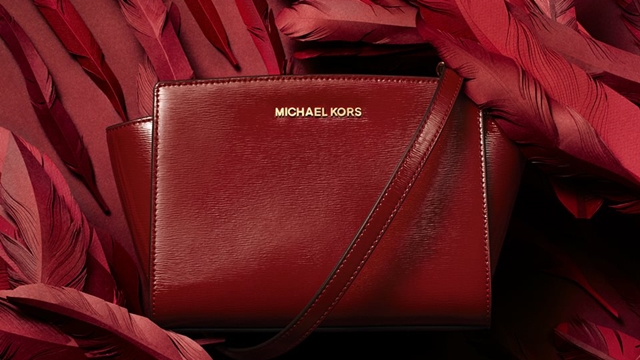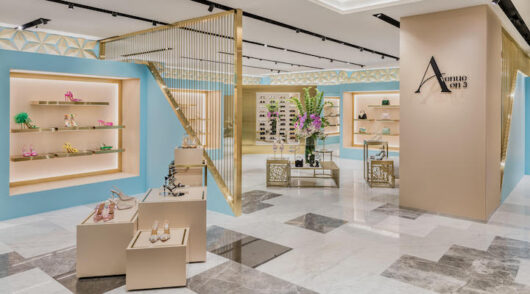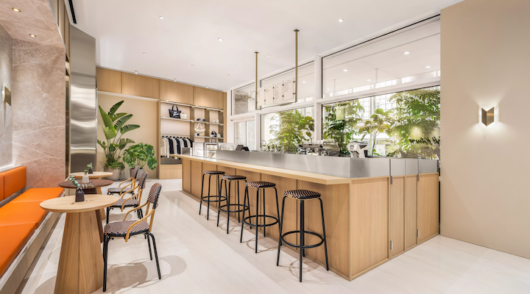Michael Kors Asia sales soared 30.4 per cent in the second quarter as the US luxury fashion company continued to progress its Runway 2020 strategic growth plan.
Sales in Asia – the group’s fastest-growing market, totalled US$124 million, up 33.5 per cent when measured on a constant currency basis.
Globally, sales rose a more modest 5.4 per cent to $1.15 billion and earnings rose 37 per cent in the quarter to September 30.
“This is a transformative time for Michael Kors Holdings Limited as we established our global fashion luxury group with the recently completed acquisition of Jimmy Choo,” observed John D Idol, the company’s chairman and CEO, said.
“We believe that bringing together these two iconic brands further strengthens our growth opportunities, increases our product and geographic diversification, and importantly, creates a platform for future acquisitions. We look forward to capitalising on the great opportunities that lay ahead for our brands and believe that we are well positioned to drive long term growth as we expand our global fashion luxury group.”
Idol said the results were better than expected, crediting the Runway 2020 strategy aimed at being more innovative in product, brand engagement and customer experience.
Analysts seemed to agree: “Michael Kors has been on a long journey of reinvention, but these latest numbers suggest the brand is starting to reach its destination of re-establishing itself as a well-regarded premium player,” said Neil Saunders, MD of GlobalData Retail.
“The sales line bears witness to this, with revenue in most regions and divisions up over the prior year. Perhaps this isn’t surprising given the very soft comparatives from 2016, but this is the first time in over a year that sales in the Americas, for example, have grown – proof the company is clawing back some of the ground it has lost.”
Michael Kors’ turnaround has been in part spurred by an expanded product offer, with the new autumn season offer up by 40 per cent. The company says it delivered higher average unit retail sales across multiple categories through innovative fashion and reduced discounting and promotional activity.
Footwear sales rose in double-digit figures. Social media engagement grew to more than 38 million followers and e-commerce sales improved, especially in Asia, North America and Europe. During the quarter, the brand opened a net 56 new stores, driving its direct retail sales up by 8 per cent.
In China, Michael Kors’ image was boosted by the appointment of actress Yang Mi as its first brand ambassador. She is considered one of the most influential trendsetters in China.
Not catching Coach just yet
While impressed with the improvement, Saunders believes the process of rebuilding is gradual, and Michael Kors is not yet achieving the kind of momentum from which Coach is benefitting.
“The same-store sales numbers hint at this, as while the -1.8 per cent decline is better than in previous quarters, it underlines the fact that Michael Kors still fails to pull in custom.
“One of the reasons for this is that Michael Kors is much more directional than a brand like Coach and, as such, its appeal is not as wide. The latest fall and winter collections are a case in point. While these contain some staple items like the Mercer handbag with its classic silhouette, they also feature edgy products like floral lace dresses and studded bomber jackets aimed at a more particular type of customer,” said Saunders.
“This targeting is not wrong. Indeed, it is what a good brand needs to do. However, it limits growth and means that Michael Kors likely has more difficulty in connecting with customers across the US in a way that more middle-of-the-road Coach does not. That said, as Michael Kors widens its product range and becomes more of a lifestyle brand, we expect it to pick up more custom from consumers who will shop around the edges of the offer. This will help trade as the firm moves into 2018.”
Saunders said the addition of Jimmy Choo to the Michael Kors empire should add around $105 million of incremental revenue to the next quarter’s sales line.
“As useful as this near-term benefit is, it is the longer-term objectives for the iconic shoe brand that are most interesting. Michael Kors has a difficult balancing act between trying to expand its new addition and retain the exclusivity that is at the heart of its success. The aim of moving to $1 billion of revenue suggests an aggressive push to open new stores and expand e-commerce.”
He said that strategically, the decision to buy Jimmy Choo and its latest Michael Kors collections suggest the company is looking to move into a more exclusive and distinct part of the luxury market.
“As much as we support this tactic, we caution that it means progress will remain slower than at other brands and that it will ultimately limit the size of the business.”






